Trending
Opinion: How will Project 2025 impact game developers?
The Heritage Foundation's manifesto for the possible next administration could do great harm to many, including large portions of the game development community.
For the two past decades, people from all walks of this big industry we call games have been wondering "are games art?". These questions are commonly followed by a resounding self-answered "yes".
I politely disagree.
Read it if you want to know wh

For the two past decades, people from all walks of this big industry we call games have been wondering "are games art?". These questions are commonly followed by a resounding self-answered and multi-layered "yes".
I politely disagree.
If you want to know why just keep reading. But excuse me beforehand because this lil' chat of ours is about to get long. And spicy. Like a burrito. And you like burritos, right? Who doesn't?

Keep visualizing this burrito along the way.
So before we begin, let's discuss a thing or two about the word people want games to be. That's right, art.
Art began with the human desire to make things prettier. Some might say it was a need to report past events, some might say it was a way to criticize their world and other defend it was a way to make visible a different one. Those are all very good and understandable reasons to make art, but, at its core, art was still about a new, prettier way to see something.
Maybe we could go as far as to say art is supposed to make you feel something, either through its beauty, criticism, fantasy or whatever. I personally was brought up to believe art is supposed to move you, to make you feel or think something you haven't before. A new outlook that, if not for art, you would not have.
Honestly, choose your poison. All those different definitions converge in so many aspects that it will make no difference what you believe at this point. We are going to destroy what art means today so it doesn't matter what it was supposed to be.
There were times when art flourished to beautiful results and times when a society saw it as sinful and thus it was condemned. Nevertheless, every time humanity started to get really good at art, they made a bunch of rules defining what art was or at least good art. One of such times was the Renaissance, which gave birth to western art and started the (new) classical period.
During Renaissance and in the centuries following it, it is pretty clear what art is and isn't. In these classical times, there was generally a painter and sculptors guild (I'm not talking about this game) or Academy defining the limits of art; what art could and could not be. There was literally a group of people creating rules such as which sort of motifs could be used in paintings, how much clothing could be used and which objects could be in the scene.
The zenith of the power of this institution was in the 19th century when the Academy had the power to determine which artists could be exhibited or not. This led to very homogeneous creations, which actually became an art movement called, surprising no one ever, Academicism or simply Academic art.
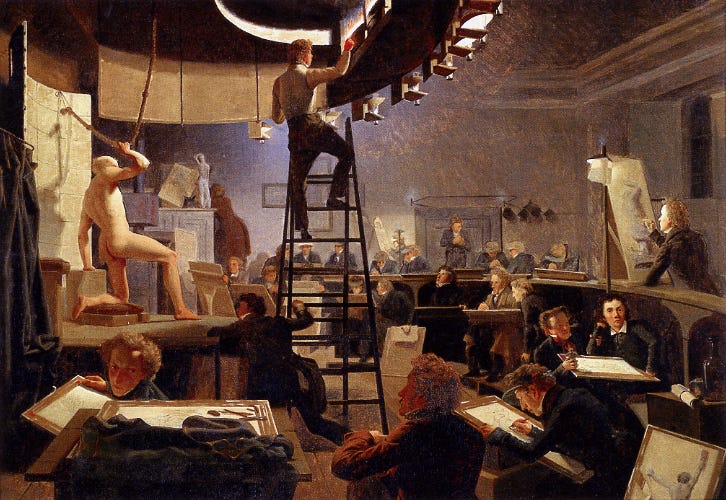
Classical art could also be meta, as long as it followed the Academy's rules. Model Class at the Copenhagen Academy by Wilhelm Bendz, 1826.
During this very dictatorial period for art, some crazy nonconformists decided not to follow the academy's rules, starting a movement now known as modernism or modern art.
When the expression modern art is mentioned, there is the tendency in the reader's mind to imagine some cubist or abstract shit. That is, indeed, modern art, but that's not how it began. Do you want to know how modern art began? Do you have the guts to see it?
take your time to decide
really, no pressure
is that really what you want for your life?
well, there is no turning back now.
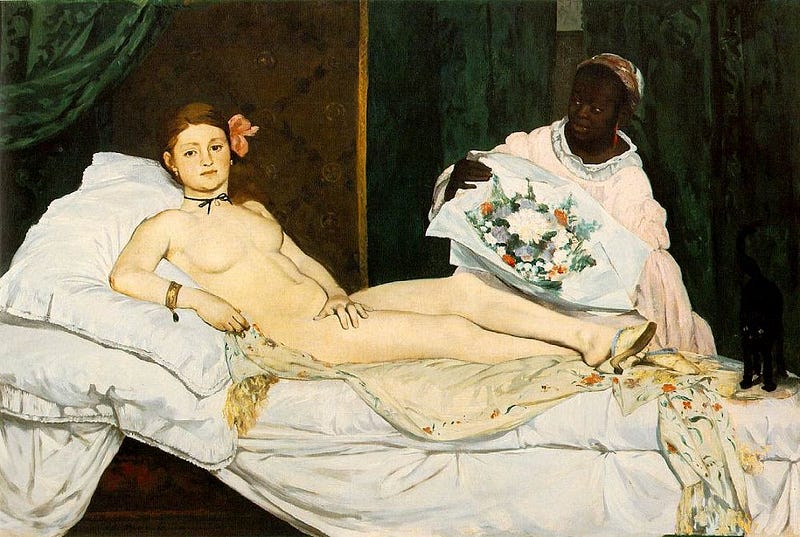
Manet's Olympia. That's how the shit started. 1856.
Are you shocked? This painting blew away society's mind at the time. With your porn accustomed and nudity numb eyes, you may not understand why this painting was as outrageous as it was. Is it because Olympia is naked? Well, sorta. There were a lot of nudes in paintings before, during and after this period. But they were posed, dressed and contextualized as mythically, fantasy or biblically inspired, the only type of nude that was ok. Nudity was fine, as long as it was pretend people, not real ones.
However, in Olympia, we can see she is using a choker and sandals, models of which were in fashion in the period. Thus, it wasn't a historical or mythological piece. If there was still any sign of doubt yet, the fully clothed maid behind her makes the final point that Olympia was no character of fiction.
She was a person, from that period, in a frontal nude.
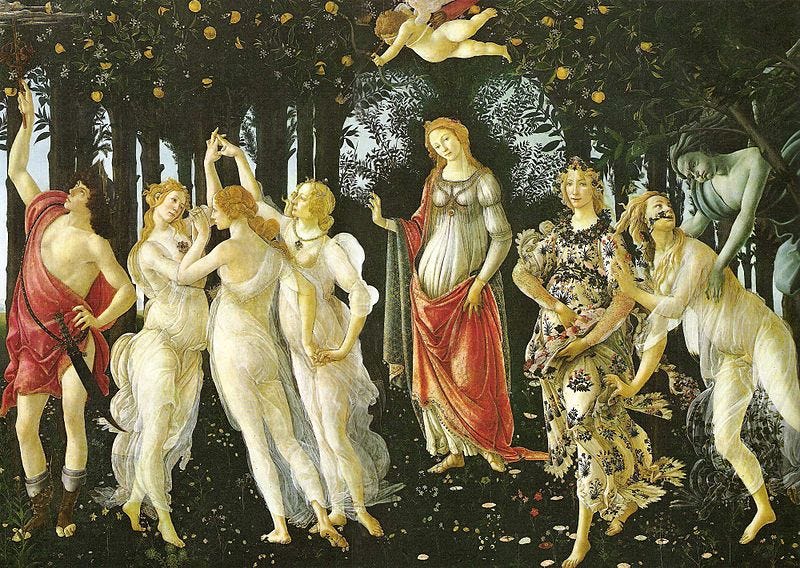
Primavera by Botticelli (1482). Mythical nudity was allowed since the XIV century, and in this particular case, we see Roman gods and goddesses. From the Renaissance to Manet, art strived to search for beauty. Times changed and aesthetics changed with them but the main objective was still beauty.
But her non-fantastical nude wasn't the most outrageous part of Olympia. It was her facial expression, Olympia’s daunting eyes. She is not shy about her nudity, she literally gives zero fucks. She actually looks daring. She dares you to look at her, to testify her nakedness, and she doesn't care if you like it. This sort of confidence and self-ownership was only allowed in one specific type of female at that time: prostitutes.
Don't get me wrong, art had its share of prostitutes. Most models were prostitutes. Female and male ones. Art was a fuck fest. But that was the private part of art, a side the public had no contact with. They saw beautiful paintings on the wall, they couldn't care less about the full-time job of people on it had as long as they didn't look like it.
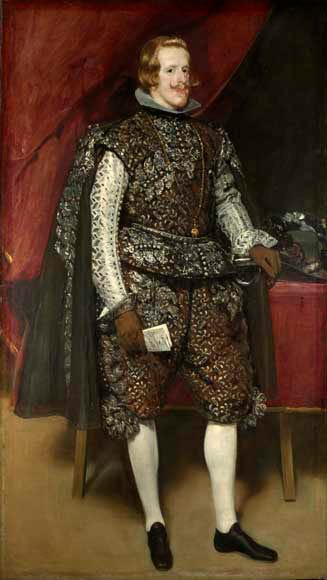
Velasquez' Philip IV in Brown and Silver(1631–1632). Velasquez was the official painter for the Spanish royal family for most of his life, and, for most of his life, he hated them. Pretty hard. His depictions of them generally show their physical and psychological faults. In this painting, for example, we can see how Philip IV doesn't look too confident. And also isn't very… attractive. Yet, Velasquez could wrap all these feelings in an astonishingly beautiful painting.
That's why Olympia was so outrageous for its time, it reminded rich people that prostitutes not only existed as real people but also presented them as art. As high art. As something to be admired and not pitied or excluded. And that was offensive as fuck for western society in the 19th century.
For a long time, art was mostly an embellishment tool. Sure, some Velasquez here and there existed, literally mocking the Spanish royal family on their own portraits, but that was done behind the curtains. It was a subtle mockery only to be perceived by some. Manet made his statement public and started right there to attack academic art (and society as a whole)'s rules.
That's when what art was slowly started to change and began questioning its own barriers and even its meaning. Olympia brought up questionings such as on the limits of nudity but things escalated over the years and as more and more artists began to make new questions. What can paintings depict and not depict? Why can't paintings be less and less real? Why can't we just make them abstract?
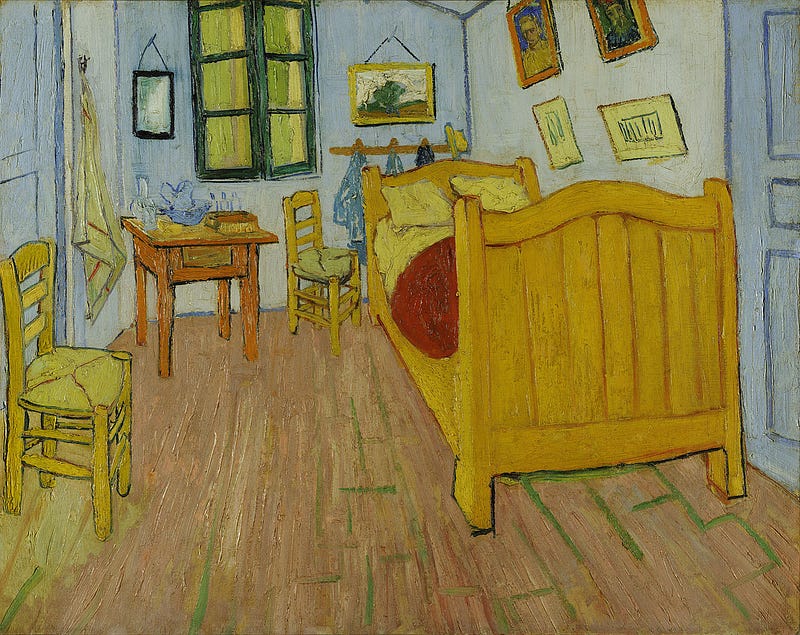
Van Gogh's Bedroom in Arles, 1888. Do we need shading and light? Can't we use lines to contour objects instead of trying to copy how light works? Is the scene still understandable is we do?
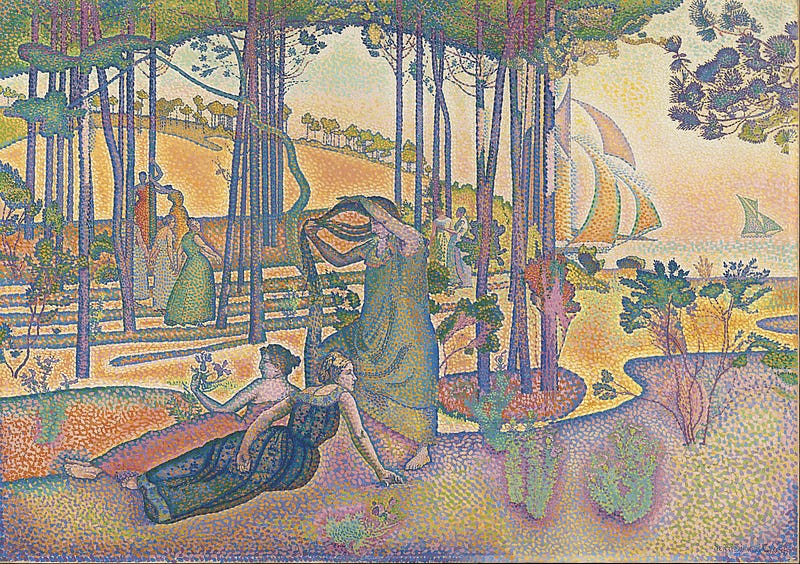
Henri-Edmond Cross L’air du soir 1893. Do we even need to mimic the shades our eye sees?
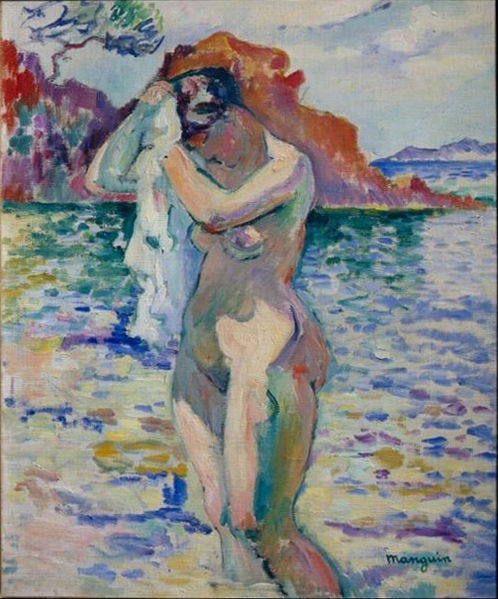
Henri Manguin Baigneuse 1906. Do we need to detail every single part of the scene? (also: non-mythical nudes)
<
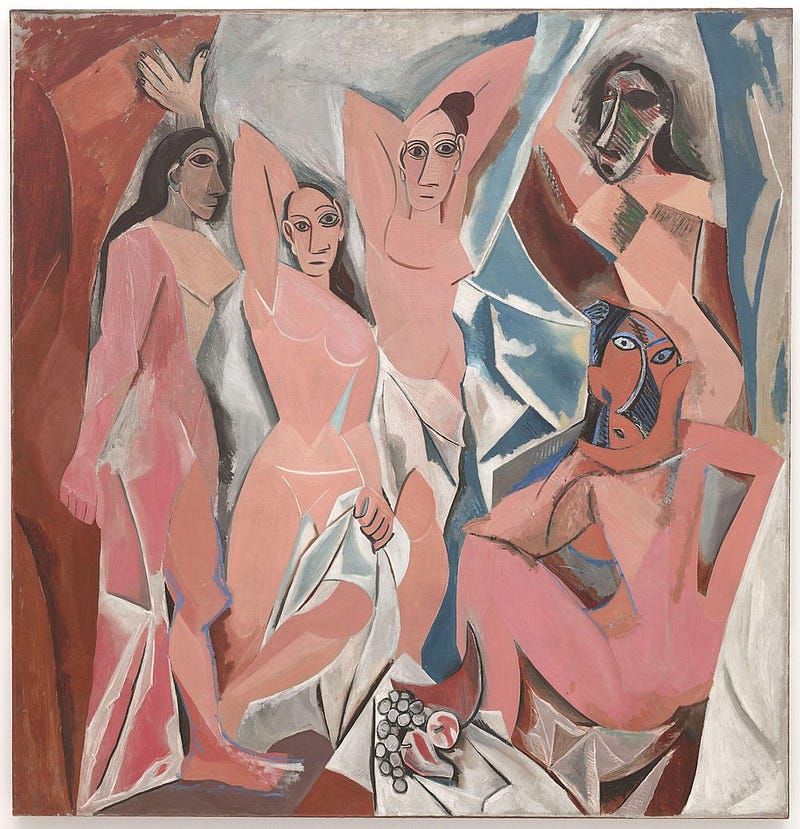
Pablo Picasso's Les Demoiselles d’Avignon 1907 (this is how long after Olympia it took to get to Cubism). Do we even need to follow anatomic shapes at all? Can't we convey meaning differently? Can't we even each surface depicted in the painting to refer to different time frames?
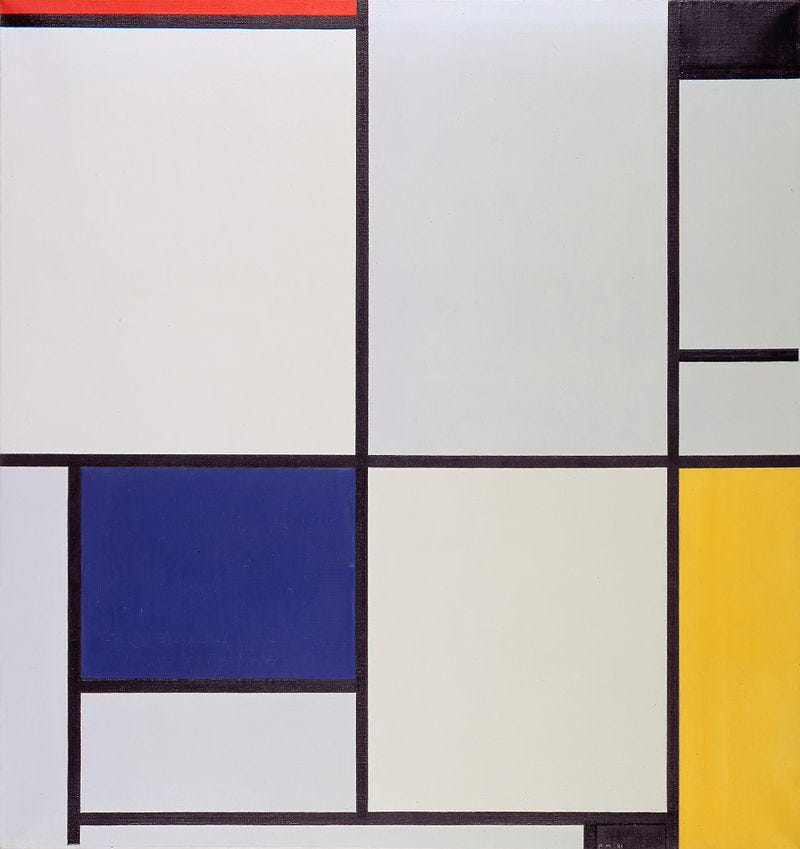
Piet Mondrian Tableau I 1921 (this is how long after Olympia for the process of deconstructing art to deconstruct THINGS into Abstractism). Do we even need to depict anything at all?
These examples are set in chronological order and although they don't depict all the variety of experimentation going on through these years they surely can give you a good sample of it. Artists were slowly but surely questioning what art meant and what art could be, every year a step deeper. They didn't conform to the previous establishment of realism and every day they were looking for yet another assumption about art that could be broken. It was wild, it was beautiful. It was art.
This transformation on the meaning of art covers the end of the 19th and the early 20th century, the early days of modern art. In this period, almost all establishments on the contents in the objects assumed to be art changed. However, artists kept expressing mostly in traditional forms: paintings, sculptures, etc.
Then the questioning changed. In 1917, this happened:
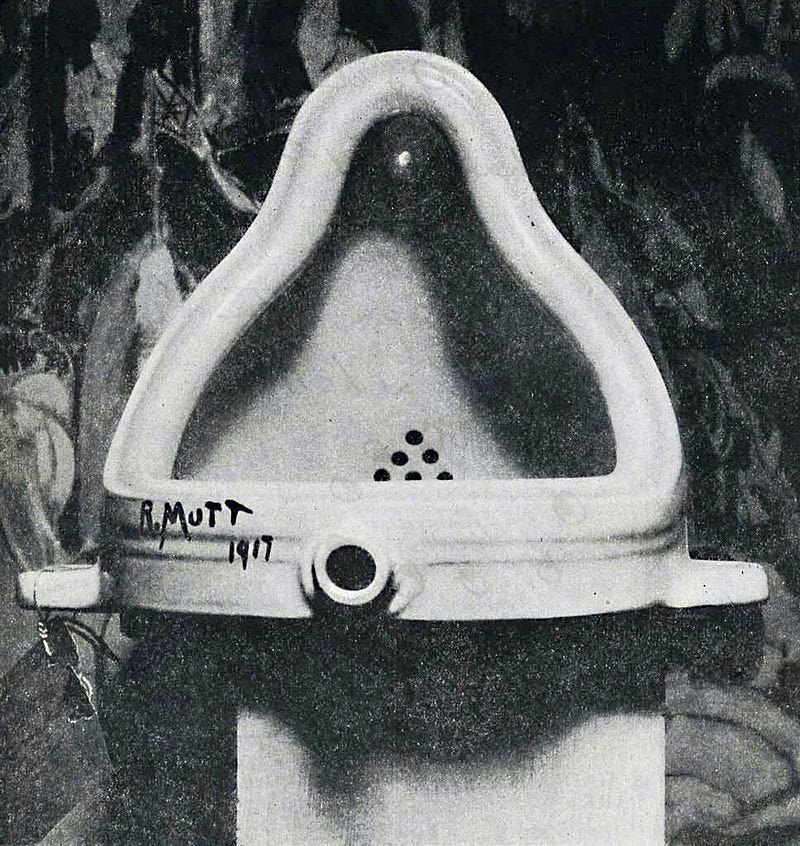
Fountain by Marcel Duchamp, 1917.
Duchamp took a urinal to an art exhibition. Not a painting of a urinal, not a sculpture of a urinal: a literal urinal.
He really did it and we all have to give it to him. He just took a fucking urinal to a damn art exhibition and motherfucking showcased it as an art piece.
Do you understand what this means? Yet again the questioning has changed. From now on, art wasn't anymore about "what else can art depict and how". What artists should be concerned after Duchamp is "WTF is art at all?" or even "does art even matter?". This took the whole thing to a new level.
A brilliant level.
A level so damn stellar… it would be pretty hard to match it afterward. Nearly impossible to top. Duchamp showed us everything could be art. Fucking genius. But by doing so, what is even the point to call anything art? One hundred years after Duchamp took a piss hole to an art gallery to question the limits of art, do we still need to wonder about these limits? To fit everything in or out a golden(shower) box and be such pricks about it?
A lot of interesting works appeared after that. A lot of questionable ones too. But mostly, art now is, once again, a rigged game full of rules (if you never saw this movie, I strongly suggest you watch it). Art is conceptualized by "artists" and executed by someone else, someone that is not the artist, a handyperson. And yet, this handyperson that has done everything gets no credit, no profit, no acknowledgment. This person is a mystery, under the shadows, never to be brought up. Because this person also can't understand art, only the "artists" that commissioned the piece can.
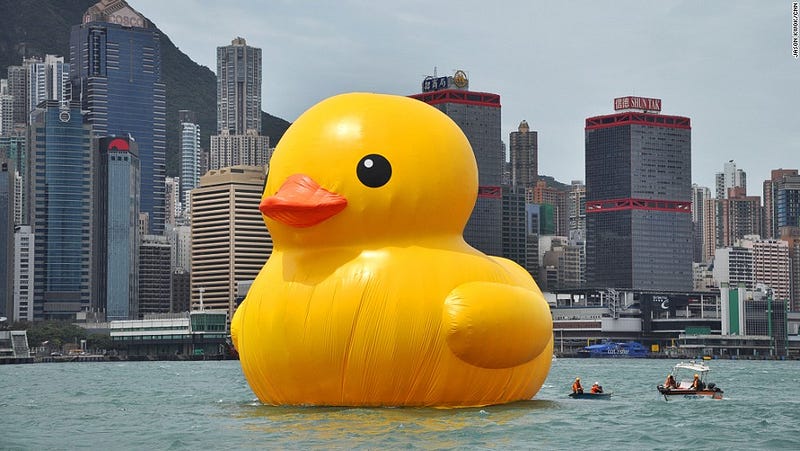
The person that had the idea of an inflatable duck is the artist, not the many who assembled it into existence.
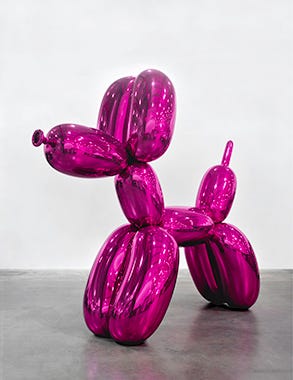
The guy that thought "maybe balloon dogs made of metal alloy should be a thing?" is the artist, not the more than 130 people making it.
Artists separated from the process of making art and just focused on "creating concepts of art" create a division that is almost impossible to break through for new creators. One simply does not do their own art anymore, they are the "ideas person". Art exhibitions are full of objects and artifacts conceptualized by one famous person and assembled by many anonymous ones, bringing us a step closer to the strict caste system in Brave New World.
Let's just sit through this common knowledge: if you are an ideas person, you produce nothing. So it doesn't matter how marvelous your thoughts are, you still haven't done shit. Your ideas are only as good as what you make with them and if you are not the one spinning them into reality maybe you shouldn't be the only person credited. Today’s art is elitist. It is an unattainable and incomprehensible concept. And yet, creative people strive to reach the elite not realizing it is a marked cards game.
I wonder if Duchamp had the faintest idea that Fountain would be the first step toward this. If, by questioning art status quo and meaning in art, he would create yet another status quo, this one rooted in meaninglessness. Also if, by questioning the importance of the artist in the production, he would leave the doors wide open to a new breed of artists, the artists that have ideas and only that.
The provocateur became the establishment.
Fountain was exhibited one hundred years ago and, yet today, art is still trying to be even more shocking and even more critical. But instead of actually being critical, art is just bumping again and again in the same fallacies, repeating itself over and over again by the same people.
And this is shit.
Remember that in the beginning of this little chat of ours I told you that some people believe art is something that moves you? That it is what makes you feel something, makes you look at the abyss and leave a different person? Well, after this entire journey it is difficult to tell if art is still that. It is hard to trust a word that is now so wide open to meanings that might not mean anything any longer.
So let's get this meaning of change in oneself and let's rebrand it in this new, fresh word: experience.
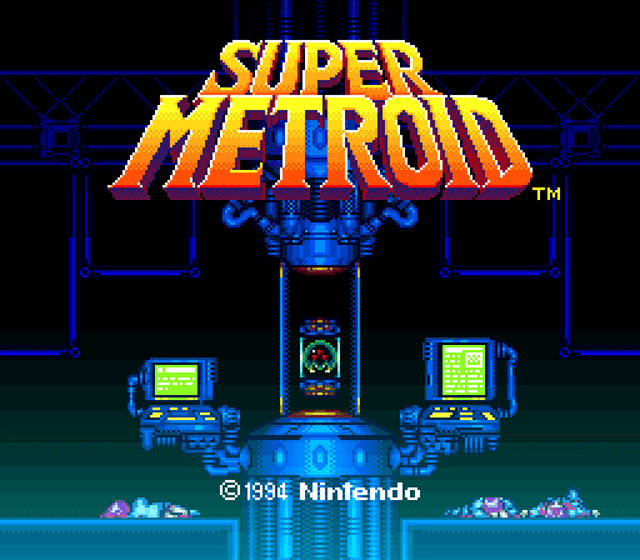
Remember the chills going down your spine when you heard the first notes played in this title screen?
How did you feel when you played a videogame for the first time? How did the controllers feel in your hand? What did the colors look like? Did you feel powerful getting to the end of the stage or to the end of a quest? Did the victory sounds make your blood rush? Did the death sound make you feel a small void inside? But that void lasted little since there was always another life, another continue, another quarter. Until there wasn't. And you felt sad. At least, a little sad. But I bet it was pretty sad.
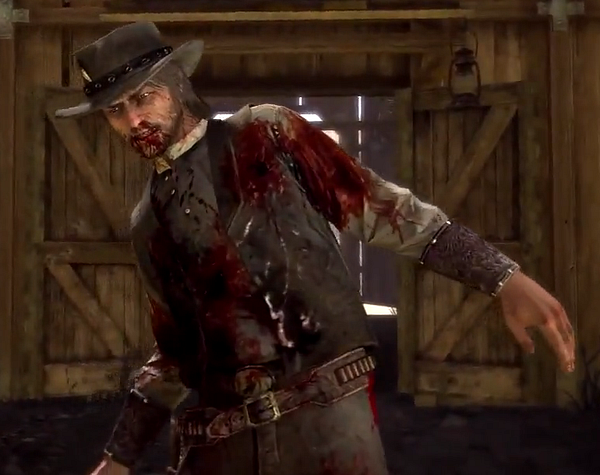
Did you cry when this happened (I'm not telling what it is for spoilers reasons)? I sure did.
All those are feelings that games made you experience. You weren't going to feel them by yourself until games engaged you with those cool aesthetics and gameplay. And, before you could tell, you really cared about what was going on on the screen. All of a sudden, it mattered to you. It matters, now.
Actually, games are particularly good at making people care since they are an interactive medium. Actually, the first of its kind to be publicly available. In a movie, a book or a painting you are a mere witness to the events unfolding before you. In a game, you not only take the active part in these events but you also are the driving force making them happen.
This is unique to games and it is very powerful.
Some may say even more powerful than all the previous media and art before games. I wouldn't say that myself, but if you would, by all means, do it. That’s why we play games. That’s why we make games. And that’s also why humans started doing art, to feel something while experiencing beauty. But that’s not art anymore, so why should we strive to reach this nomenclature?
That's how fucking different games are from everything else. And that's why we should understand games as they are and not by using measures, definitions or restrictions from other media.
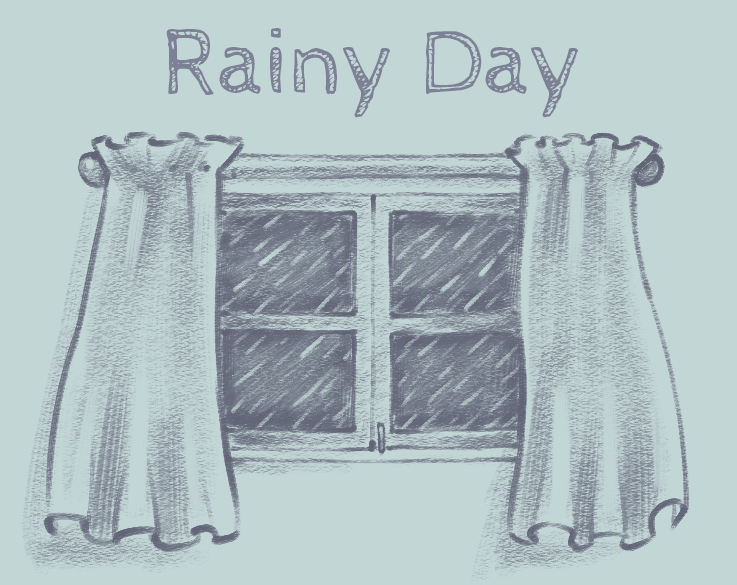
Games can even be about how you feel.
Is there anything more offensive than to say a game is "cinematic"? Are narratives ever going to be referred to as "close to literature"? That certain games "break the fourth wall"? Do you see what we are doing when we even stop to think like this?
We are using the measurements of other media to castrate videogames. We are using the past to describe games today, and by doing that we are limiting what games can be. This is a whole other Pandora box right there, but you get the point. Games are a "new" media and as such, it feels like we need to prove our legitimacy. To do so, we use past medias lingo and try to fit into their standards. But by trying so hard to be approved by mama and papa other media and artists, we end up losing our own shape, our own identity.
Today, "art" is an empty word, devoid of meaning. What art is and art means has already been asked and answered one billion times. If games are or aren't art is beside the fucking point.
Quoting Chris Crawford, screw art.
Games shall not strive to be art. Games are their own fucking thing.
And I call this thing experience, but if you do not agree with me, screw experience too. Also, fuck indie. Fuck AAA. Fuck all these fucking labels we create to try to understand the world but end up limiting our creativity. Don't let someone else's aspirations or definitions ever limit you again. Burn the tyranny of words. Burn everything to the stake.
Thanks for reading this far! This text was inspired by talks with Gabriel Camelo, Danilo Dias, André Asai, Arthur Zeferino, Maíra Testa, Thiago Girello, Theo Tanaka, Gustavo Foletto, and Beto Thiago and also carefully crafted with the help of Lucas Molina and Anita Cavaleiro. Thank all these fuckers for listening to my complaints and frustrations, otherwise, this text would never be written.
Read more about:
BlogsYou May Also Like